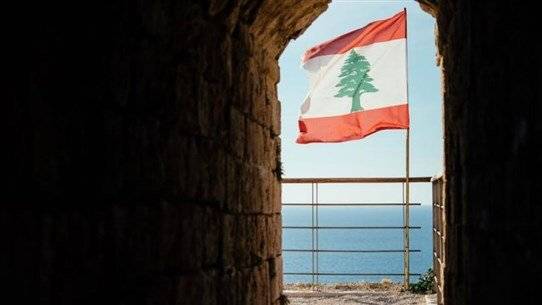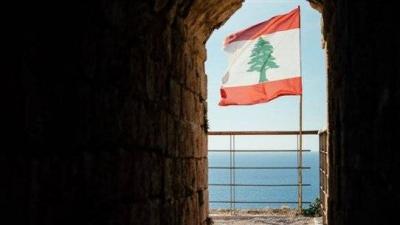There is no clearer indication of the mounting crisis amid the ongoing collapse affecting all remaining institutions than what was witnessed in some areas of the capital yesterday afternoon, with blocked roads and rising protests in the streets, rejecting the continued deteriorating service and living conditions on various fronts. All of this has not prompted officials to hasten the necessary steps to extract the situation from this impasse threatening internal stability, as most indicators suggest that what awaits Lebanon is alarming on all levels if a government is not formed capable of managing the upcoming phase, especially in the event of a vacancy in the presidential position if a successor to President Michel Aoun is not elected.
Arab diplomatic circles revealed to "Al-Liwaa" that "the picture of the presidential entitlement in Lebanon remains unclear, and there is still no clear vision among the Lebanese of the desired profile for the future president. This will not greatly assist the friendly foreign countries to Lebanon in playing the required role in this regard," stressing that "it is necessary for the Lebanese political and spiritual components to finalize their stance on this file and work towards a minimum consensus on one or two names to run for the presidential elections, considering that Lebanon needs a new president who has the strength and capacity to reunify the country and extract it from its crises."
The sources pointed out that "Lebanon will remain of interest to its Arab brothers and the donor countries, but this requires the Lebanese themselves to initiate the necessary reform steps to follow the path to rescue before seeking any external assistance, whether from Gulf states or others. The experience has clearly shown that the key to saving Lebanon is in the hands of the Lebanese themselves. Keeping the decision outside the state's institutions significantly harms the process of recovery and, consequently, gaining the trust of both Arabs and the West."
Following the flare-up of military situations between Israel and the Gaza Strip, while awaiting the results of Egyptian mediation, concerns remain about the escalation spilling over to the southern Lebanese front if Israel has an interest in that, especially after the escalation in rhetoric between Israeli officials and Hezbollah, which has continued to issue threats regarding the maritime border demarcation file. It appears that Israel has not responded positively to Lebanese demands presented by American mediator Amos Hochstein.
Sources from the majority believe that what was said by the commander of the Quds Force in the Iranian Revolutionary Guard could increase the state of tension in Lebanon and the region and provide a justification for Israel to attack Lebanon, considering that "Hezbollah" is at the mercy of Tehran's orders to implement what it requests, and this will surely come at the expense of Lebanon's interests and its people. They noted that "after the Iranian military official's statements, the maritime demarcation file has become endangered, as it seems that the Iranians do not want to complete this file before knowing the fate of their negotiations with the Americans. As usual, Tehran uses Lebanon as a mailbox amid its ongoing conflict with the Americans and the West."
The sources stated that "Iran wants to use all its leverage to pressure Israel and the United States in its attempt to impose its conditions regarding the nuclear file. This is extremely dangerous, as movement on the southern front cannot be ruled out if the Iranians desire it, especially since Hezbollah holds alone the decision of war and peace," asserting that "the indicators of escalation are alarming, and cannot be separated from the developments in the region, from which Lebanon may not be exempt from its repercussions." Recent visitors reported that President Michel Aoun expressed concern about the stability established during his tenure, especially regarding security stability, and fears developments on the ground following the end of his term if the current fragmentation continues.




